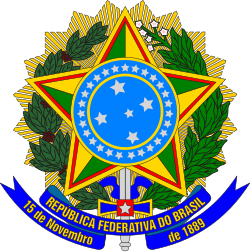| |||||||||||||||||||
369 members of the electoral college 185 electoral votes needed to win | |||||||||||||||||||
|---|---|---|---|---|---|---|---|---|---|---|---|---|---|---|---|---|---|---|---|
| |||||||||||||||||||
 | |||||||||||||||||||
| |||||||||||||||||||
| This article is part of a series on the |
 |
|---|
Indirect presidential elections were held in Brazil on 25 October 1969. The elections were the third held under the Brazilian military government, and used an electoral college system.
